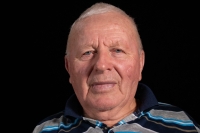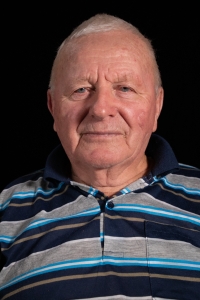Dad disappeared when families were deported to Bărăgan

Stáhnout obrázek
Jan Kotešovec was born on 14 May 1937 in Eibenthal in Romanian Banat, where he also later grew up. During the Second World War, he attended the local Czech school and at the time of the 1944 Romanian coup d‘état, he witnessed the retreat and flight of Romanian soldiers from the village. After completing fourth grade he stayed with his parents to help them out on the farm and for several years his Mother sent him to the Romanian school in Orșova. While the deportation of the population of Bărăgan was being carried out, the witness’s father František Kotešovec disappeared and his body was found several days later in the Danube. He spent his military service in the town of Brașov, previously Orașul – Stalin, he says he was assigned to the Securitate as a radio telegraphist. After finishing his service, this witness earned his living as an electrician, getting the necessary qualifications. Eventually, he would remain in the profession for 44 years, retiring in 1998. He says that in order to keep his job under the previous regime, he entered the Romanian Communist Party. In 2021 he was interviewed as part of the Stories of our neighbours (Příběhy našich sousedů) project. He is currently still living in Eibenthal and belongs to the handful of farmers still keeping a cow for their own use (September 2022).

